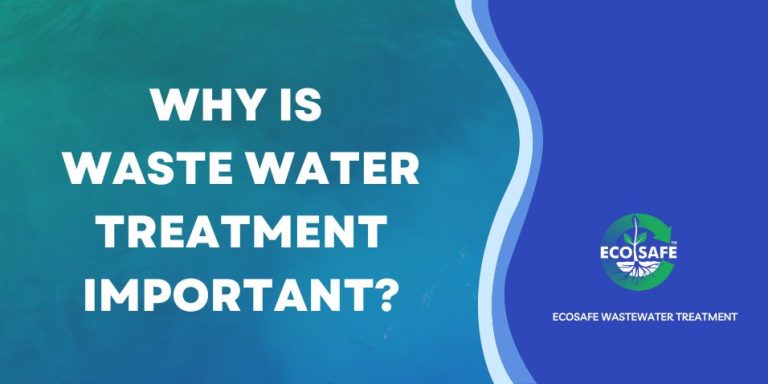10 Simple Techniques For Reclaim Waste
10 Simple Techniques For Reclaim Waste
Blog Article
Getting My Reclaim Waste To Work
Table of ContentsThe smart Trick of Reclaim Waste That Nobody is DiscussingWhat Does Reclaim Waste Do?Little Known Questions About Reclaim Waste.The Ultimate Guide To Reclaim WasteExcitement About Reclaim Waste
Check out the kinds, events, and types of liquid waste. Domestic sewer waste describes the waste and products from a property septic system. This type of waste is developed by people in houses, colleges, and other structures. This only includes septic systems that have a drainpipe area. The proper management and disposal of residential sewage waste call for liquid waste to be moved to a sewage therapy plant where the appropriate methods and tools are applied to purify and take care of waste.
Industrial waste typically consists of prospective hazards, such as flammable products or a mixture of liquid and strong waste items, and requires an advanced and in-depth disposal procedure. The disposal of business waste generally entails the filtration of waste before transportation to make certain safe and appropriate disposal. Hazardous waste is developed from byproducts and runoff of commercial processes and production.
This type of waste can not make use of the same sewage administration transport or processes as septic or commercial liquids. The hazardous waste monitoring procedure calls for the evaluation and screening of fluid waste prior to it goes through the disposal procedure (liquid waste removal melbourne). Overflow waste is the liquid waste that comes from runoff and excess stormwater in very inhabited areas or cities
Overflow waste can create contamination and flooding otherwise managed properly. Find out more about sewer cleansing and waste management. Guaranteeing proper waste monitoring can stop catastrophes and decrease environmental harm. Both individuals in residential settings and professionals in business or manufacturing sectors can profit from understanding the procedures and laws of fluid waste administration.
Not known Facts About Reclaim Waste
Get in touch with PROS Services today to learn more about our waste management and disposal solutions and the correct means to take care of the fluid waste you generate.
(https://www.callupcontact.com/b/businessprofile/Reclaim_Waste/9368278)This so-called 'wastewater' is not just an important source yet, after therapy, will be launched to our land, rivers or the sea. Made use of water from toilets, showers, bathrooms, kitchen area sinks, laundries and commercial processes is understood as wastewater.

water made use of to cool down machinery or tidy plant and equipment). Stormwater, a kind of wastewater, is runoff that streams from agricultural and metropolitan locations such as roof coverings, parks, yards, roads, paths and rain gutters into stormwater drains, after rainfall. Stormwater moves unattended directly to regional creeks or rivers, ultimately reaching the ocean.
Some Ideas on Reclaim Waste You Should Know
In Queensland, the majority of wastewater is treated at sewage treatment plants. Wastewater is transported from residential or commercial websites via a system of sewage systems and pump stations, referred to as sewerage reticulation, to a sewage treatment plant. City governments develop, keep and run most sewer therapy plants. Operators are licensed under the Environmental Protection Act 1994 to discharge cured wastewater at an appropriate ecological criterion right into rivers.
The Division of Natural Resources advises city governments concerning handling, operating and preserving sewage systems and treatment plants. In unsewered locations, regional governments may require householders to install specific or family sewage treatment systems to try this out deal with residential wastewater from commodes, kitchens, washrooms and laundries. The Department of Natural Resources authorises using household systems when they are confirmed to be reliable.
In some new subdivisions, therapy of some stormwater to eliminate litter, sand and gravel has actually begun using gross contaminant traps. Wastewater therapy occurs in 4 stages: Gets rid of solid issue.
Makes use of tiny living microorganisms knows as micro-organisms to break down and get rid of remaining dissolved wastes and great fragments. Micro-organisms and wastes are integrated in the sludge.
How Reclaim Waste can Save You Time, Stress, and Money.
Nutrient elimination is not offered in any way sewer therapy plants due to the fact that it calls for pricey specialized tools. It is coming to be much more usual in Queensland. Clear liquid effluent produced after treatment might still have disease-causing micro-organisms. If this effluent is launched right into rivers such as rivers or the sea, the micro-organisms will at some point pass away out.

This normally means wastewater has to be dealt with or pollutants eliminated prior to it can be discharged to rivers. Most wastewater flows into the sewerage system. Under the Act, neighborhood federal governments administer approvals and permits for eco pertinent tasks (ERAs) entailing wastewater releases that may have a neighborhood effect. The department carries out authorizations and licences to Periods including wastewater launches that could have a regional or statewide influence.
Unknown Facts About Reclaim Waste
Otherwise, samples are considered laboratory evaluation. Typically several tests are required to establish the levels of each of the different contaminants such as oils, hefty metals and pesticides in water. Tracking gives factual information regarding water quality and can verify that permit problems are being fulfilled. The info gotten through monitoring supplies the basis for making water top quality choices.
Report this page